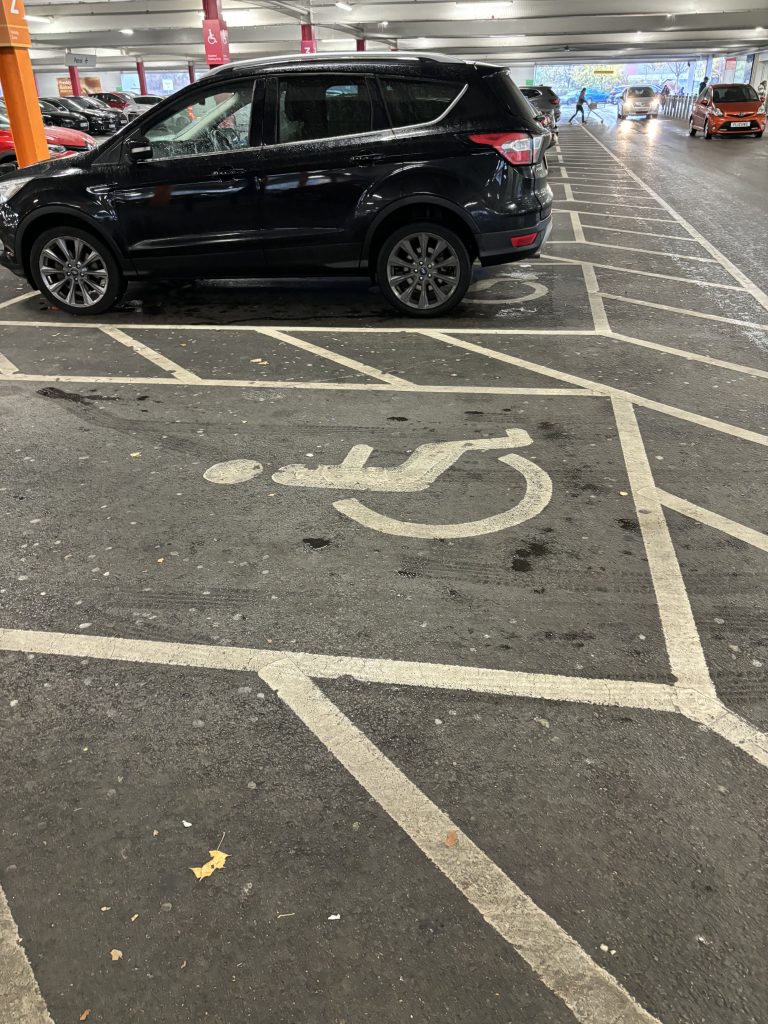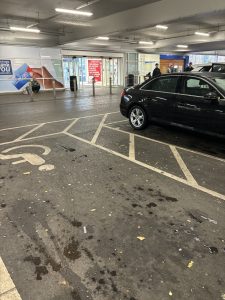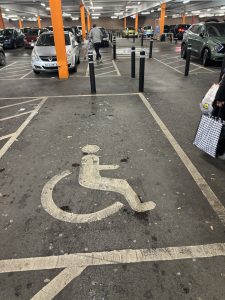
A clampdown on abuse of disabled parking badges is beginning today across Salford.
Salford council is stepping up checks that blue badges are being used correctly and will be prosecuting people using them illegally, following a two-week amnesty for anyone to hand in badges they are not entitled to.
The extent of Blue Badge fraud means many genuinely disabled people struggle to find an accessible disabled parking space.
But the clampdown has sparked controversy on social media among Blue Badge users across Salford with some carers defending their use when shopping with disabled people who have a badge but are not driving themselves.
Carer Lorraine Rogers believes that if a family member has a Blue Badge, drivers should be able to use a disabled parking space when accompanying them on shopping and other trips.
She posted on Facebook: “Often I’d park in the disabled space and mum, who was disabled and had dementia, wouldn’t get out of the car. I’d would leave the car in the disabled space as it would be quick and convenient, and I could keep an eye on her and be able to get back to her asap.”
Other members of the public believed use should be restricted to the disabled drivers themselves.
Ganyu Plenilune wrote: “The whole point is to help provide people with disabilities the independence most adults have.”
 Photo by Alex Burgess
Photo by Alex Burgess
Joan Breen agreed with Ganyu saying: “Often the Blue Badge holder remains sitting in the car, while a seeming fit person runs across to do the shopping.
“I’m disabled and if I’m not going into the store myself I park in a none disabled space. I know how almost impossible it is to exit my car and unload a wheelchair, when trapped in these narrower spaces but I can happily wait for my fit passenger parked there.”
Use of Blue Badges by people with mental illnesses such as depression and conditions such as autism also divides opinion.
Christine Booth believes Blue Badges should only be allowed for people with physical disabilities.
She wrote: “Not all disabilities are visible e.g. mental health conditions. The Blue Badge allows you to park nearer to entrances to stores to alleviate struggles in walking. Can anyone with a hidden disability explain the need for a blue badge?”
But, opposing this, Sue Davies has a Blue Badge for her daughter who is autistic and believes it is necessary.

She said: “When she is experiencing a sensory meltdown, I’ve had to physically carry her to the car in order to help her become calm again. The looks I get sometimes using a disabled space for her safety leave me cold. I’ve even been yelled at by someone saying I should use parent and child space (these weren’t even close to the front of the store I was visiting) and that there was nothing ‘wrong’ with my daughter.”















Recent Comments